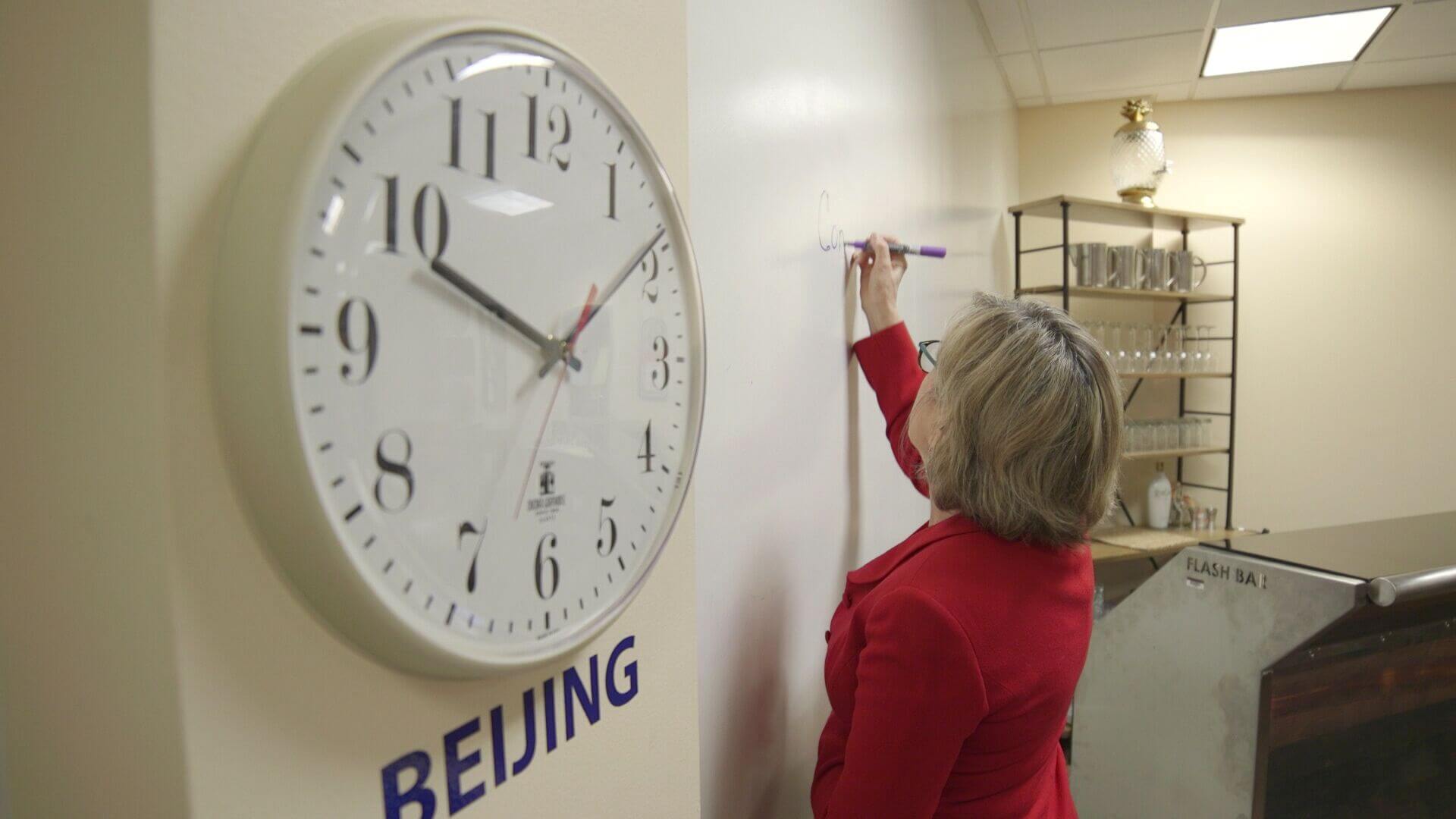Overview
Great Bay’s History program is an associate degree that prepares you to transfer to a four-year school to complete your bachelor’s history or political science degree and beyond. You will take courses in history, political science, and sociology as well as general education courses. Our courses explore various places and time periods. Working with historical sources you will practice analyzing, developing, writing, presenting, and defending ideas on a path to careers such as law, public policy, education, government, or historic preservation.
Why Great Bay?
A history degree at Great Bay promises affordable options without sacrificing quality.
Dual Admissions
In this program you can enter a dual enrollment agreement that will ease your transition from Great Bay to the participating four-year school of your choice. It will also grant you access to advisors from both schools to maximize your class choices while at Great Bay. Dual enrollment agreements are available with the University System of New Hampshire schools and Southern New Hampshire University.
Find out more at the University System Dual Admissions page
Find out more at the SNHU-GBCC transfer page
Equivalency
At Great Bay, almost every History and Political Science course offered is considered equivalent to courses at 1 or more 4-year institutions and transfer directly as those courses. This includes our upper level offerings. More courses and equivalencies are being added on an ongoing basis.
Articulation
With the University of New Hampshire, Great Bay has formed an articulation agreement for the History degree. By following the guidelines for course selection provided by your Great Bay advisor, you can complete your GBCC history degree and enter UNH as a history major with a junior status.
View the agreement (PDF)
Faculty
At Great Bay, you’ll be working with faculty who are active creating scholarship and working in the fields of history, politics, and archaeology. Our recent faculty have trained and/or taught at a wide variety of colleges and universities including:
- Barstow Community College
- Binghamton University
- Bowling Green
- Boston University
- Brandeis University
- Harvard Extension School
- Merrimack College
- Nashua Community College
- Northern Essex Community College
- Southern New Hampshire University
- University of Edinburgh
- University of Massachusetts, Amherst
- University of New Hampshire
- University of Stirling
- Vanderbilt University
Early College
Are you in High school with an interest in history? Get a head start by enrolling in our early college program to start your journey toward a degree.
Career Options
What to do, what to do? Our History program can lead down the path to careers as:
- Archaeologist
- Archivist
- Campaign Specialist
- Curator
- Government Executive or Legislator
- Government Official
- Historian
- Lawyer
- Library Scientist
- News Analyst
- Political Scientist
- Professor
- Public Interest Advocate
- Teacher
Related Degrees
Curriculum Outline
The classes and coursework required is as follows:
First Year: Fall Semester
| Course ID | Course | Theory | Lab | Credits |
|---|---|---|---|---|
| MATH145G / MATH147G | Quantitative Reasoning / Plus (or higher) | 4 / 5 | 0 | 4 / 5 |
| History Elective | 3 | 0 | 3 | |
| History Electives: AMER110G, ENGL214G, GEOG110G, HIST (all), POLS (all) or SOCI120G | ||||
| ENGL110G / 111G | College Composition I / College Comp I with Lab | 4 | 0/2 | 4/5 |
| Social Science Elective | 3 | 0 | 3 | |
| Total Credits | 14-16 | |||
First Year: Spring Semester
| Course ID | Course | Theory | Lab | Credits |
|---|---|---|---|---|
| MATH225G | Probability and Statistics | 4 | 0 | 4 |
| OR | ||||
| MATH215G | Finite Math | 4 | 0 | 4 |
| History Elective | 3 | 0 | 3 | |
| History Electives: AMER110G, ENGL214G, GEOG110G, HIST (all), POLS (all) or SOCI120G | ||||
| Social Science Elective | 3 | 0 | 3 | |
| English Literature Course | 3 | 0 | 3 | |
| Foreign Language / Humanities / Fine Arts Elective | 3 | 0 | 3 | |
| Total Credits | 16 | |||
Second Year: Fall Semester
| History Elective | 3 | 0 | 3 | |
| History Elective | 3 | 0 | 3 | |
| History Electives: AMER110G, ENGL214G, GEOG110G, HIST (all), POLS (all) or SOCI120G | ||||
| Lab Science Elective | 3 | 3 | 4 | |
| Social Science Elective | 3 | 0 | 3 | |
| Foreign Language / Humanities / Fine Arts Electives | 3 | 0 | 3 | |
| Total Credits | 16 | |||
Second Year: Spring Semester
| History Elective | 3 | 0 | 3 | |
| History Elective | 3 | 0 | 3 | |
| History Elective | 3 | 0 | 3 | |
| History Electives: AMER110G, ENGL214G, GEOG110G, HIST (all), POLS (all) or SOCI120G | ||||
| Lab Science Elective | 3 | 3 | 4 | |
| Foreign Language / Humanities / Fine Arts Electives | 3 | 0 | 3 | |
| Total Credits | 16 | |||
Total Overall Credits: 62-64
Program Outcomes
Upon graduation, students will be able to:
• Examine historical and political perspectives and concepts.
• Develop strong communication skills that can be applied to a variety of disciplines.
• Identify and critique appropriate primary and secondary sources to complete research.
• Demonstrate academic skills to prepare for transfer to other institutions or to work in the field.
• Analyze the relationship between society, culture and politics in a variety of periods and locations.
• Construct long-form and shorter evidence-based arguments.
• Argue in historical and political debates, both written and oral, from multiple perspectives.
What is History?
Studying history is more than just memorizing times and dates. It’s about why and how things happened, more than simply what happened. History is one of the humanities, which means it explores questions of why people and groups do what they do. It looks at all the ways people express their ideas and values along with the impacts they have.
History is also a social science, which means it considers how people have organized their communities and governments with special emphasis on culture.
What History Majors Do
As a history major, you’ll read about local and far-off places.
You’ll learn the reasons and context for many of today’s trends and events. You’ll learn about ideas of government, culture, and societies. You’ll consider issues from different perspectives. You’ll attend special lectures and presentations and explore local historic sites and museums. You’ll read and discuss other historians’ ideas, and learn to build your own ideas from them or in opposition to them. You’ll create your own interpretations and theories complete with research, on topics of your choosing.
Remember: everything has a history. What you uncover can be up to you.
The Humanities Collaborative
Great Bay participates in the New Hampshire Humanities Collaborative, a program designed to find creative ways to promote exploration and understanding of the humanities, as well as cooperation between New Hampshire’s Community Colleges and UNH.
As a history student at Great Bay, you’ll have the opportunity to participate in seminars, workshops, and programs created through or in conjunction with UNH and the Community College System. Great Bay students have participated in mock nomination conventions, civil discourse forums, and transfer panels.

Jordan Fansler



